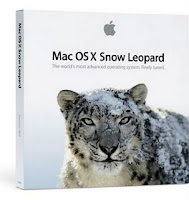With the Android version number bump, the Galaxy Tab 7 is now on 2.3, while my Samsung Epic 4G is on Froyo 2.2. The Galaxy Tab 10 inch that came courtesy of Google IO is on Honeycomb 3.1, my Mac is on 10.6.8 (awaiting 10.7 Lion), the HP laptop is on Windows 7, the CR-48 is running ChromeOS, the iPod Touch is on iOS 4 somewhere and the iPads are somewhere in my kids' rooms, waiting to get charged. No devices I come in contact with are perfectly aligned.
With the obfuscation from handset vendors like Samsung and HTC providing their own custom skins to the Android development landscape and adding delays, the months following the first release of a build means I've practically forgotten whatever benefits I was supposed to look for in the first place. In older, more simple times, one could easily describe the benefits between version number upgrades on phones and computers, but not so much any more, lacking retail cardboard boxes and a unified release date, whereby recipients all get excited for simultaneous mass downloads and share their impressions, instead, waiting for the build to hit their phone, and even then, hope they are first in line for the serial Over the Air update crawl.
My "Laggard" Epic 4G is Chilling on Froyo 2.2.
Back when I was 'stuck' on 2.1 on the Epic seemingly forever, I couldn't wait to get my hands on Froyo 2.2, the main attraction being the option to download all my updates on Android Market simultaneously (or so I remember). But trying to preempt Samsung's release of Froyo turned out to be an "Epic" mistake - yes, pun intended. I had managed to get my hands on a build that was a dead end, one that wasn't supposed to be public, and one that couldn't go up, only down. I ended up eating my pride and going to Sprint to have the damage undone, reverting back to 2.1, and back up through official channels. So I didn't do the same for Gingerbread, having learned my lesson.
In addition to learning I should pretty much just play by the rules, the point by point upgrade system on Android has mirrored that of the Mac in recent years, whereby incremental upgrades are not much to write home about. I could barely tell you the difference between 10.5 and 10.6 as Apple patted itself on the back for "No new features" in Snow Leopard from Leopard, if you remember, so the sub-releases like 10.6.1 through 10.6.8 are scarcely worth mentioning.
Honeycomb, when it works well, is obviously a much better story. The 3.0 line of Android for tablets strongly deviated from the 2.0 line for phones, although, again, the bump from 3.0 to 3.1 was largely uneventful.
Looking back on some of the initial coverage around Froyo last year, it seemed the most anticipated capability was Flash in the browser - something I barely hit on my phone. Gingerbread 2.3.4 (what my Galaxy Tab 7 is running) is highlighted as having video chat in Google Talk, a cool feature I've already used, but oddly, something I'd expect through an application upgrade, not an OS upgrade. 2.3 also came with UI enhancements, a new keyboard, NFC support and some mysterious improvements on power management and app management. I'll take the upgrades of course, but if the improvements are so minor as to have to be researched, why then have we gotten so up in arms over the idea of fragmentation anyway? Either the product does what you expected it to and runs the apps you want, or it doesn't.
I absolutely agree, as does Google, considering their announcements at Google IO this year, that leading phone manufacturers should ship with the newest versions of software as fast as they can without mucking things up. The media and developer attention to fragmentation has definitely impacted their message and way of thinking. But as someone running different OS's on every device at this point, life's a lot less confusing than I thought it'd be.



